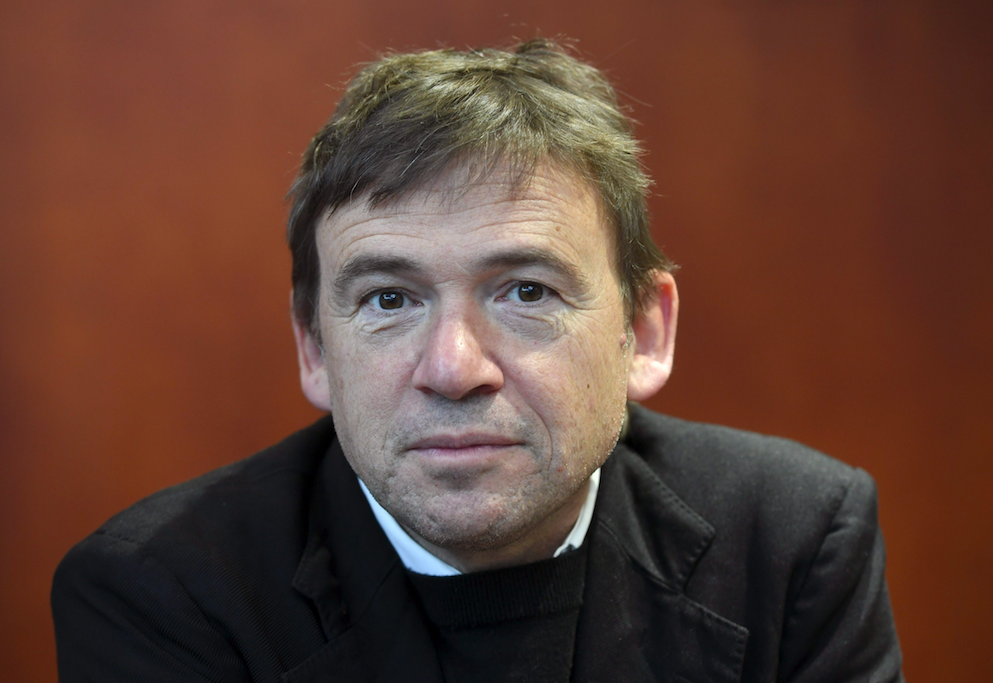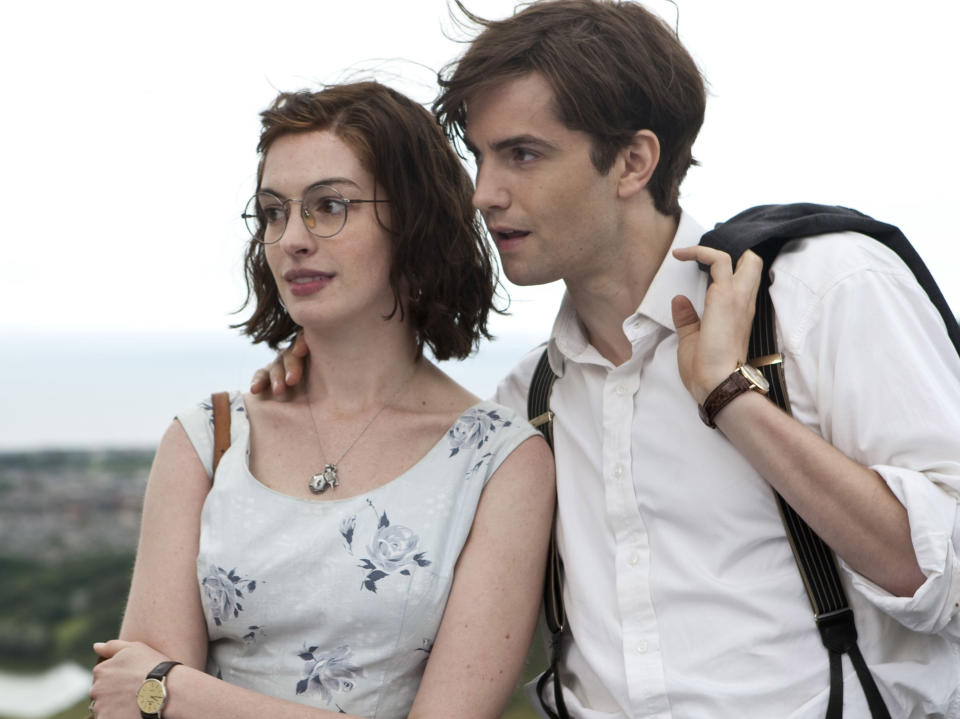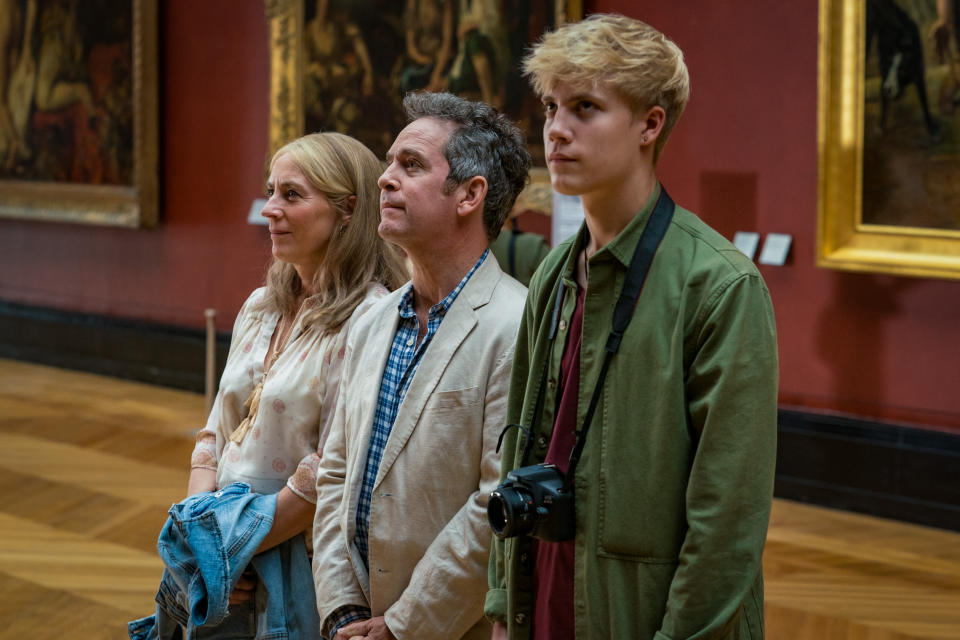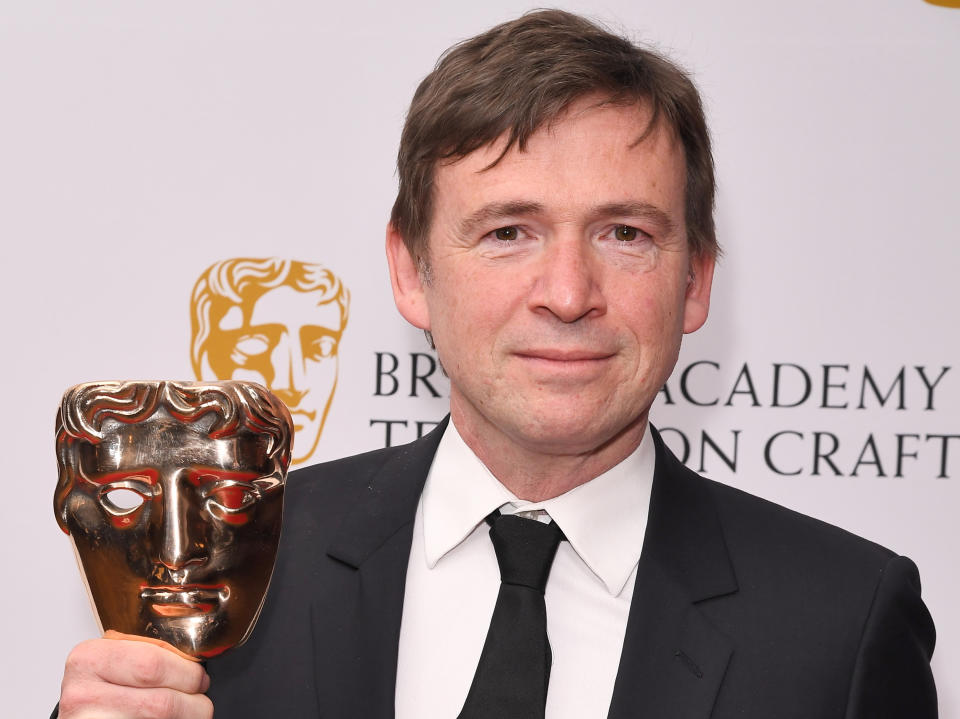David Nicholls: ‘I didn’t have the confidence to show my work to anyone. That is a regret’

When David Nicholls found himself suddenly surrounded by a school of jellyfish during a swim in an isolated French cove, he feared the worst. “It was horrific, really, really horrible and alarming. I did think ‘Oh, I am going to have a heart attack and die,’” he recalled. In the end, he took a deep breath, braved the sting attacks and swam to safety. The incident is one of the few truly autobiographical moments in his novel Us, which has been adapted into a four-part BBC One series.
“The jellyfish scene is brilliantly done,” says Nicholls, speaking on the telephone from his Highbury home. “The great joy of being a novelist is that when bad things happen in life, you get a chapter out of it.” The best-selling author jokes that he was “as unbrave and complaining” in real life as Douglas Petersen, the middle-aged protagonist of Us, who is portrayed in the television version by Tom Hollander.
Us, which was longlisted for the 2014 Booker Prize, tells the story of Douglas’s desperate battle to save his marriage to Connie (Saskia Reeves) during a “grand tour” of European cities with their disgruntled teenage son Albie (Tom Taylor). In Douglas, Nicholls captures a particularly fussy, unrelaxing man caught in a very particular midlife crisis. The novel is full of insights about marital communication problems and the dynamics that can leave one person feeling like the odd one out within a family. The emotional pull of the story won over Russell Crowe, who praised Us and even considered taking on the main role on screen.
At the time he was writing the novel, Nicholls was reading the work of American author John Cheever. “His stories are great at the hidden frustrations of apparently happy bourgeois men who are actually full of rancour, despair and self-loathing,” says Nicholls. Numerous male readers found “a certain amount of self-recognition,” he continues, with the emotionally repressed character, especially in regard to his constant fretfulness and self-doubt. “Women tend to recognise their husbands and how maddening they can be, how dogmatic, controlling and frustrating, even though they may still be loved,” he adds.
Nicholls, who was catapulted to global fame with the success of his 2009 novel One Day, which became a hit movie starring Jim Sturgess and Anne Hathaway, speaks softly. He is friendly and considered in everything he says, though the word “anxiety” crops up a lot. He is wary about making any sweeping “state-of-modern man” assertions about his new protagonist, Douglas. “I always wanted Us to be a character sketch rather than a portrait of a generation. Maybe Douglas’s inability to express himself, the anxiety about the future, and the way his anxiety eliminates and wipes out the pleasure in the moment, I think there is a bit of that around,” says Nicholls.

The author, who won a Bafta last year for his adaptation of the Patrick Melrose novels, was 43 when he created Douglas – he is now 53, the same age as his character – has two children with his long-term partner Hannah. “I’m pleased that Douglas is not a lothario,” he says. “That is quite often the character of a male that age who is restless in a marriage and wants to have affairs to rediscover their youth. Douglas really is deeply in love with Connie and wants things to stay exactly the same.”
One of the most potent aspects of the story is Douglas’s troubled relationship with Albie, and their struggle to find a natural, relaxed way of simply talking to one another. When Nicholls was growing up in Eastleigh, Hampshire, his father worked as a maintenance engineer in a Mr Kipling cake factory. He died while Nicholls was writing Us. I wonder whether, in his fifties, Nicholls has come to terms with his feelings about his own son-father relationship?
“I can understand my father so much more now than I did at 18,” he says. “At Albie’s age all the interesting stuff is outside the home, and you want to be with your friends at school or college. When I was Albie’s age, my father was made redundant from the job he had been doing all through my life and I don’t think I was as attentive or as thoughtful about that as I should have been. I was just thrilled about the opportunities that were opening up, going off to university and meeting new people. I didn’t really want to be at home. Certainly now, even though my kids are younger, I am much more sympathetic to what he must have been going through.”

After graduating with a BA in Drama and English from Bristol University, Nicholls tried to make it as an actor, under the stage name David Holdaway. “There was already a David Nicholls actor and under Equity rules I had to find another name, so I took my mother’s maiden name, Holdaway,” he explains. “I thought that was the natural choice, but coming up with something that sounded like a brand name for luggage was one of many bad decisions in my acting career.”
His low point was acting in “a couple of kids shows that weren’t much fun”, but the most frustrating experience was understudying Konstantin in The Seagull at the National Theatre. “That was one part that I could make a decent fist of and was desperate to play,” he says. “Instead, I stood at the edge of the stage as a Russian peasant in every performance for about nine months. I got to watch brilliant actors like Helen McCrory, Judi Dench and Bill Nighy, but I was largely unemployed and never did any acting apart from my peasant work. I would only have needed a tiny taste of success as an actor to have stuck with it.”
He did a variety of odd jobs to make ends meet. His favourite was working in the Notting Hill branch of Waterstones for several years in the early 1990s. But gradually realised that writing books rather than selling them was his way out. “In a way of osmosis, I learnt a lot about writing, and read an endless amount of scripts and manuscripts,” he says. “But I didn’t have the confidence to show my work to anyone. It wasn’t until I was 28 or 29 that I dared show work to anyone, and that is a regret. I think probably I should have started earlier.”

After working as a screenwriter, Nicholls published his first novel, Starter for Ten, in 2003 – also a film adaptation, starring James McAvoy – followed two years later by The Understudy and then One Day, the bestseller that sold more than five million copies. A gap of five years followed before Us, the idea for which came while he was doing a year-long book tour abroad. “I was seeing these extraordinary European cities, often places I had never been to before,” he says.
Although Brexit happened after the novel’s publication, it was on his mind during the production. “I never imagined that Brexit would happen,” says Nicholls. “I have always loved Europe and saw myself as European – the novel was a kind of love letter to Europe. I am very pro-Europe and think Brexit is a terrible mistake. I still feel sad about it, but I didn’t want that to be part of the drama in a direct way. I hope that when people watch they will feel some of that fondness for these extraordinary places.”
They were two weeks from completing final production when the pandemic struck. “We had finished shooting but were still adding additional dialogue and had to stop completely. People quickly came up with all this brilliant technology and we used Zoom,” says Nicholls. “Productions all over the place were exploring ways to do this. It was exhausting and really fascinating. I’m sure there will be long-term changes in television and film production because of this experience.”
The lockdown affected him in ways closer to home, too, not least his continued problems with insomnia. “The virus has disrupted everyone’s lives. At the beginning, I found it horrible. My daughter Romily was shielding and the year was thrown into disarray,” says Nicholls. “Some of the insomnia was down to anxiety about what coronavirus would mean for all of us. I did worry a lot and it became impossible to write. I have certainly not done any significant writing in the last five months. I’ve always been an insomniac, unfortunately, and a fretter and a worrier, but the dial was just nudged up a couple of notches. I am a little calmer now.”
Nicholls says his own life is nowhere near as “calamitous and fraught as Douglas’s” and laughs when I ask if he will ever pen his memoir? “No, it’s the one thing I know I will never write, because it would be incredibly dull and too boring to write,” Nicholls says. “I like sitting at my desk and coming up with stories about other people.”
‘Us’ is on BBC One on 20 September at 9pm

